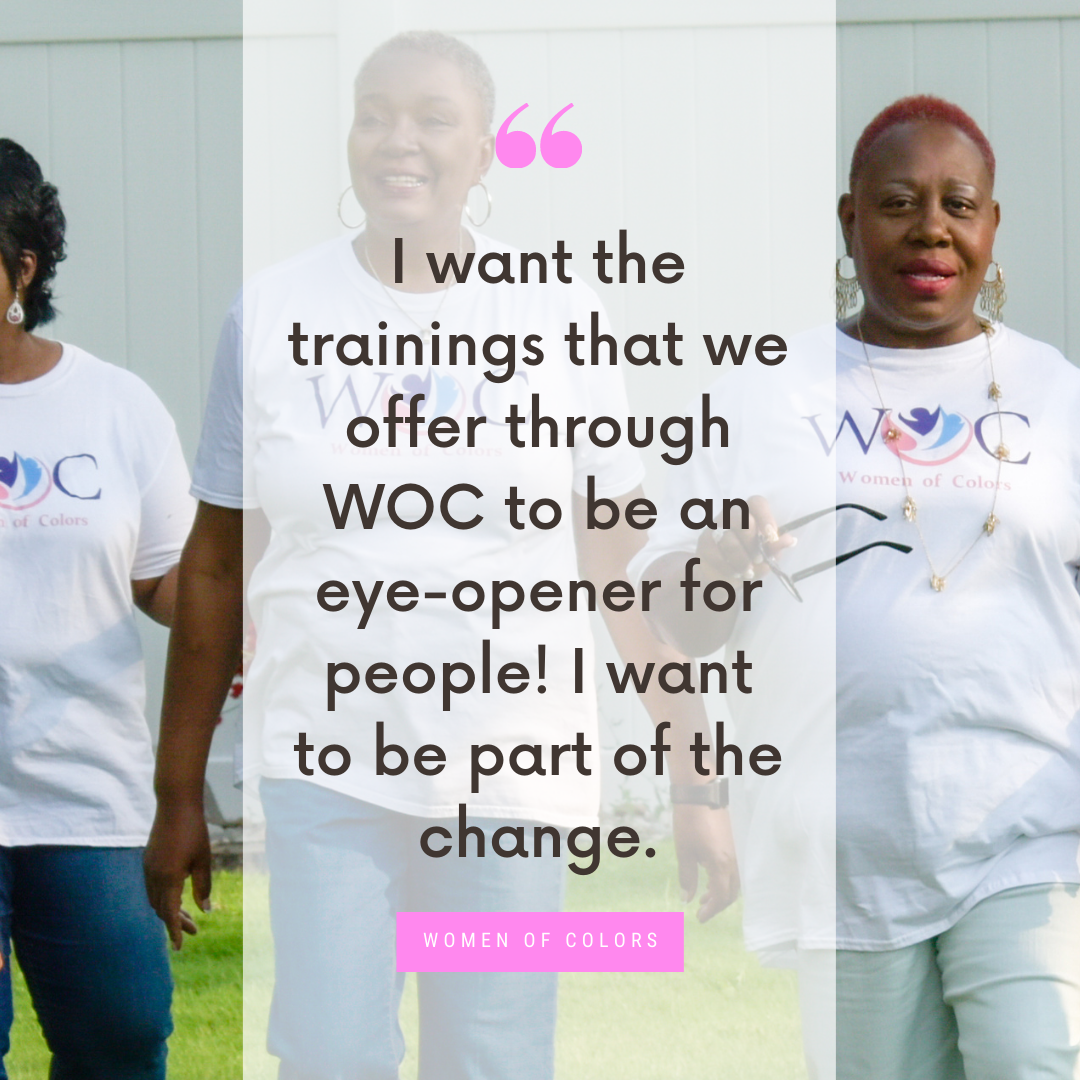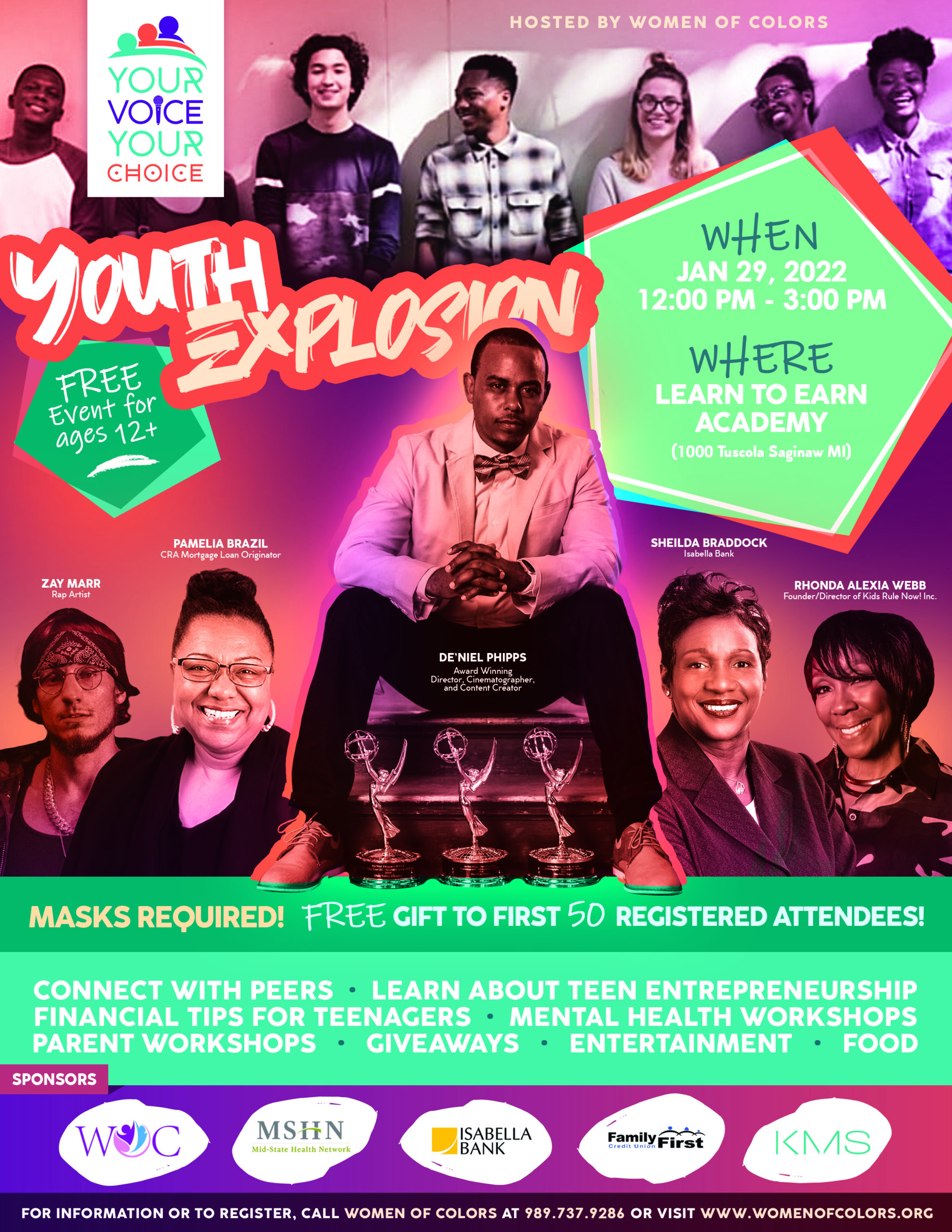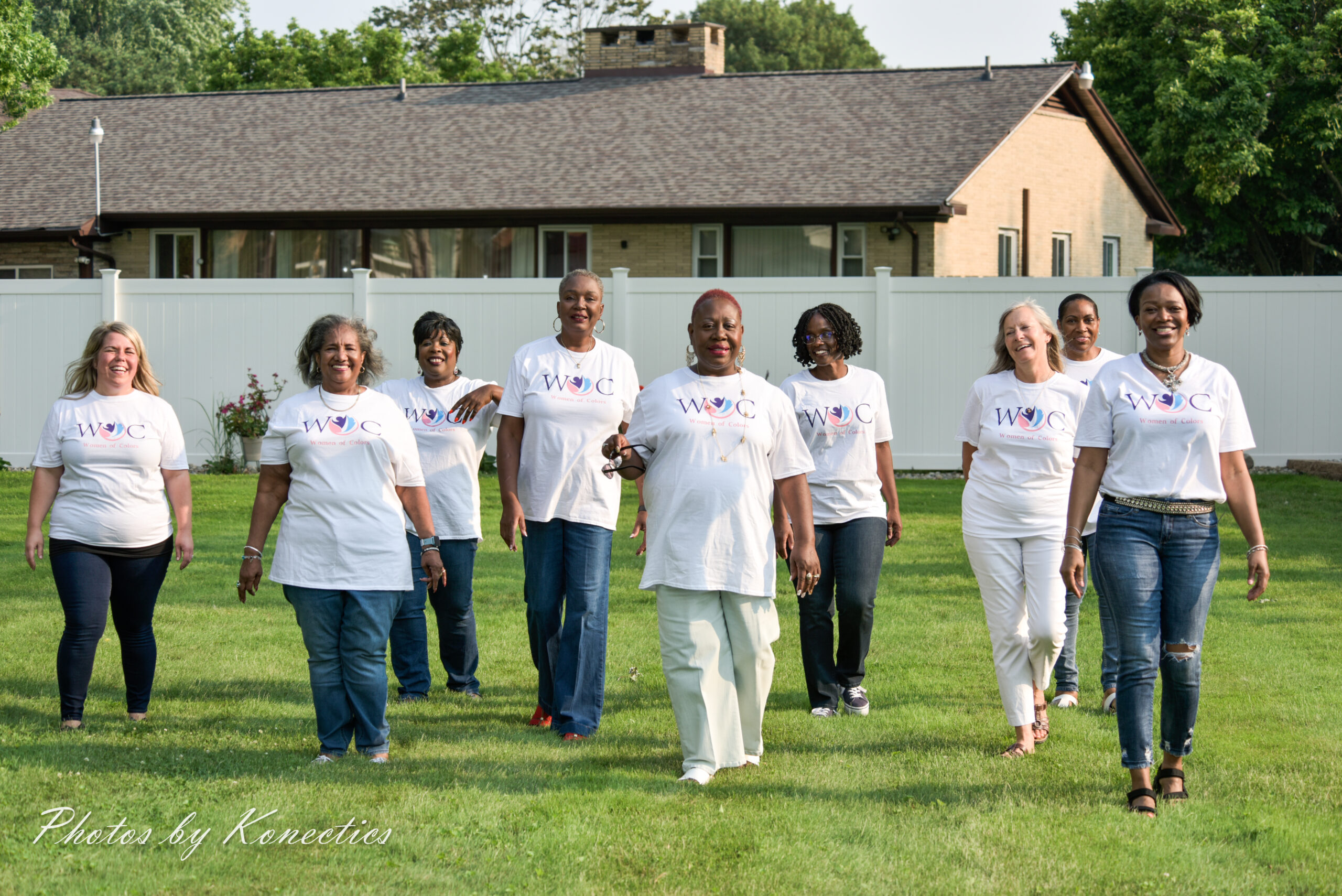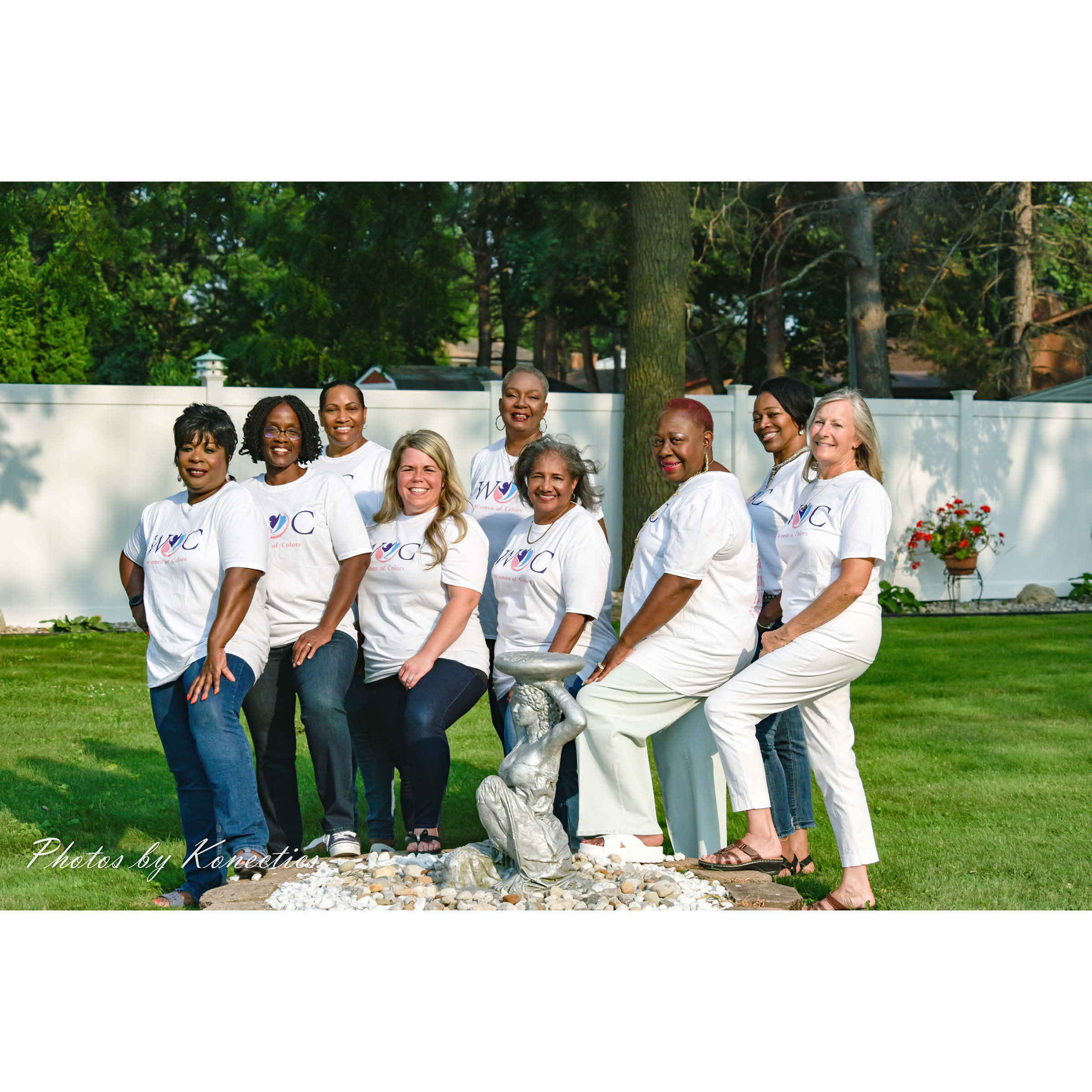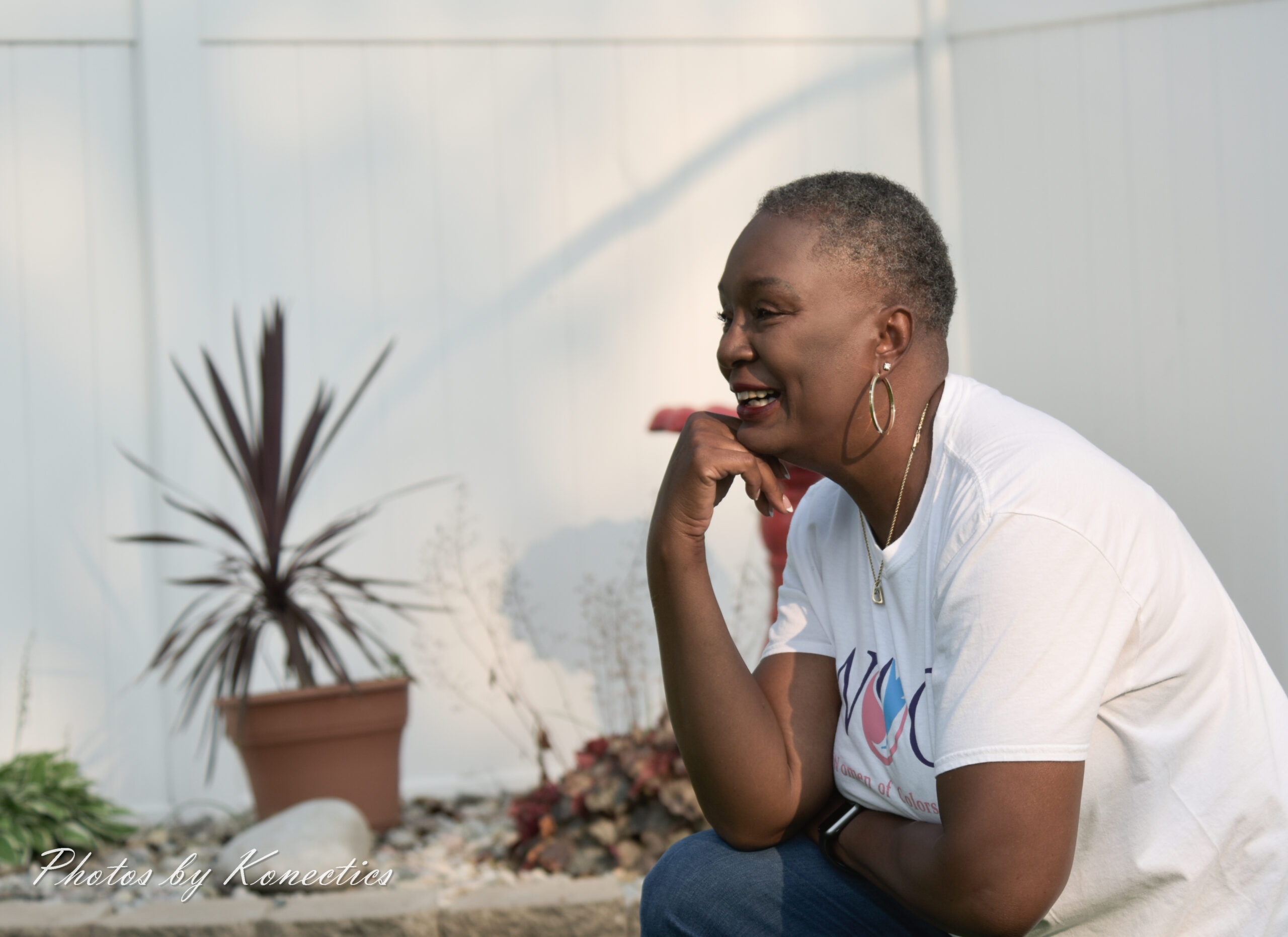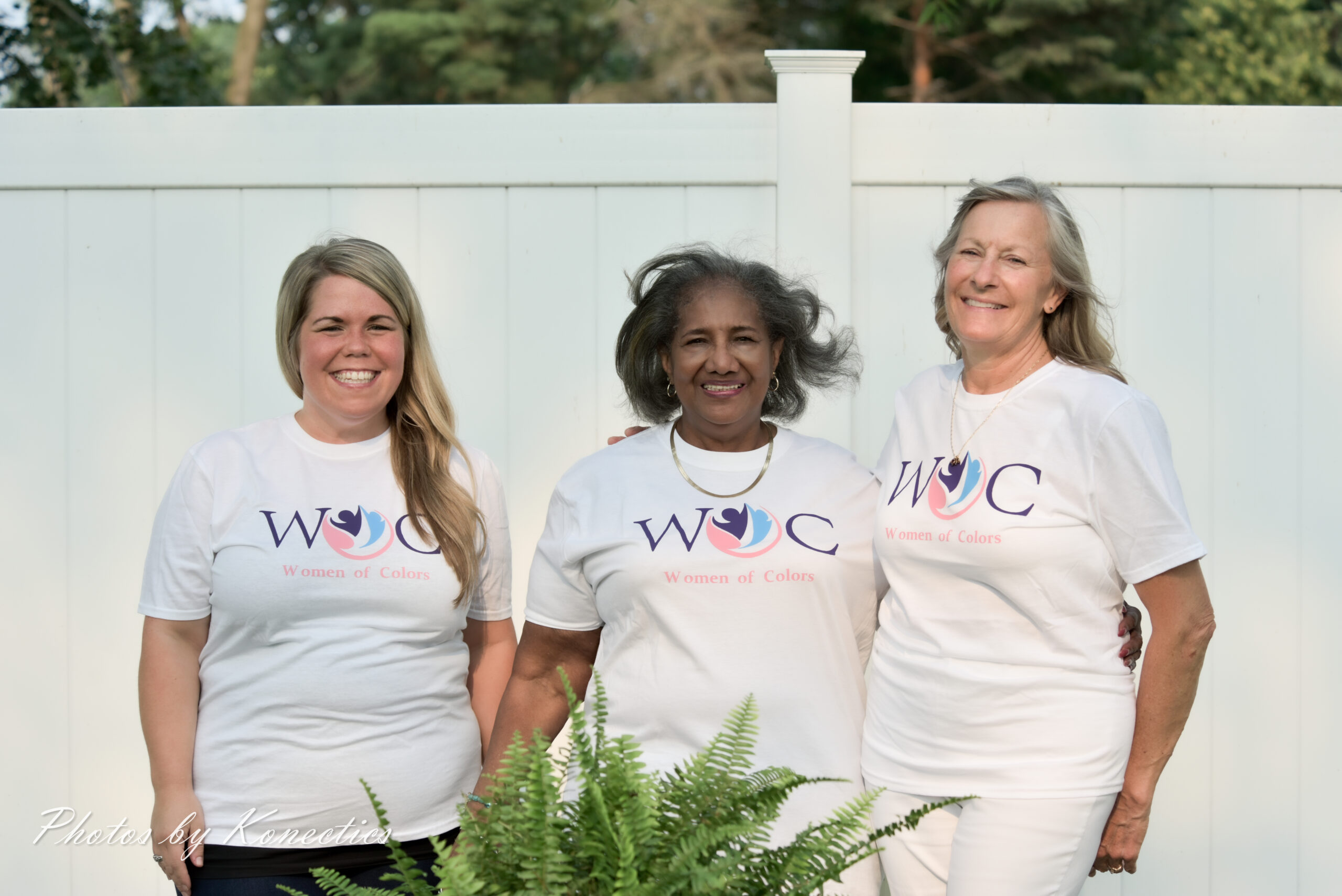As you may know, Women of Colors recently received a $200,000 discovery grant from Michigan State Endowment to explore racial inequities in access to follow-up healthcare. The grant award, which is part of a one-year pilot program, focuses specifically on behavioral health. Both substance use disorders and mental health disorders fall under the behavioral health umbrella.
Michigan State University reached out to WOC after finding out how much we do in the Great Lakes Bay Region, particularly with regard to community engagement. They thought we might be a good fit and encouraged us to apply for the Racial Disparities in Behavioral Health Follow-Up Care Grant. WOC was awarded the grant on August 12, 2021! “They reached out to us to apply because they thought we qualified for this grant, they saw the work we were doing in the community, and they felt we had the trust and we were engaged,” says Evelyn McGovern, WOC President and Cofounder. “We’re very honored to have received the grant and for them to trust us to fulfill the obligations required.”
Compared to any other race, African Americans receive 20% less follow-up care for behavioral health needs, including substance use and mental health disorders. With the funding from the Michigan Health Endowment Fund, we plan to identify the reason—or more likely, a set of reasons—for these racial disparities.
Right now we are most interested in gathering information and clarifying the problem at hand. If an agency tries to solve a problem before knowing exactly what factors contribute to the problem, then their efforts won’t be nearly as effective as they would be if they began by speaking to people who are impacted by the problem.
Evelyn shares her excitement that WOC was awarded a data discovery grant rather than a traditional research grant: “With a discovery grant, we’re discovering as we go what the outcome is going to be. We have more room to explore and determine what’s best for our community to find answers.”
WOC plans to tackle this challenge in three ways. First, we plan to set up one-on-one interviews with clients who have not received follow-up care for behavioral health needs. Second, we will host listening sessions where facilitators can hear stories from individuals impacted by healthcare inequity in a group setting. Third, we will distribute e-surveys as well as hard-copy surveys to gather knowledge about whether and how African Americans make use of the behavioral health services available in their communities. “We want to get our discovery data from different sources, triangulating the discovery,” says Evelyn. “I am interested to see the differences in the response we receive from a one-on-one interview versus a listening session versus a written survey.”
If you are not familiar with the term listening session, think of a loosely structured focus group. “In a listening session, facilitators ask some initial questions to spark a dialogue, then listen to how participants feel about their health and how their health is being managed,” Evelyn explains. “And if their health is not being managed, we want to learn why not.”
Evelyn stresses the importance of empathy and good listening skills when working side-by-side with community members on a project of this size and urgency: “We need to better understand what has caused these disparities in people’s lives. We have some ideas about the types of problems our community members are facing—for example, transportation issues and lack of insurance. But there could be other barriers we don’t know about yet.”
WOC has already identified some questions we will pose to the community in order to begin addressing these disparities. We plan to reach out to staff, and most importantly, clients at a variety of agencies and organizations. “If a participant has not followed up with a visit to the Emergency Department or even a regular physician visit, we are interested in the reason they haven’t followed up with their care,” says Evelyn. “For example, a participant might have gone to a substance abuse facility to get help but not completed the program.
“By speaking with this person, we could determine if they left due to lack of insurance, lack of transportation, lack of trust, or a combination of these factors.” Community members may face a variety of barriers, Evelyn adds, including physical barriers, financial barriers, and emotional barriers.
WOC is collaborating with many other agencies in the Great Lakes Bay Region to bring this project to life. Our collaborators and stakeholders include the Saginaw County Health Department, the Saginaw County Mental Health Department, the Saginaw County Prevention Coalition, the Saginaw Community Foundation, the Great Lakes Bay Health Center, the Saginaw County Jail Correctional Facility, Solutions Behavioral Health, Saginaw Citizens for Equity and Justice, PEER 360 Recovery Alliance, T.D. Holden Jail & Prison Ministry, ReEnvision You Counseling and Therapeutic Services, and Michigan State University.
Collaboration is the key because each agency has their own expertise. For instance, the county health department has performed many needs assessment surveys, trying to figure out how they can better serve the community. The community mental health agency in Saginaw County mainly focuses on behavioral health issues. “It’s very important that we find out what data other agencies already have, so we’re not reinventing the wheel,” says Evelyn. “Sometimes we aren’t sure how best to move forward, and these partnerships are a great resource to help us answer a lot of questions.”
An agency like Women of Colors plays an important role in engaging the community. Where other agencies focus many of their resources on serving people when they walk in the door, WOC hopes to reach clients before they walk in the door. Evelyn explains that our collaborators provide great services, and not all community members know where or how to access these services: “Women of Colors is trying to connect the dots.”
Earlier this year, WOC and some of our collaborators gathered to complete a stakeholders’ assessment, where we identified potential barriers African Americans face when accessing behavioral health services. Evelyn is excited about the number of agencies that are open to trying to figure out how to make behavioral healthcare more accessible for African Americans. “We realize there is an issue and there needs to be a change,” she says. “Something has to change in order for the situation to get better and for these barriers and disparities to be eliminated.”
By August 2022, WOC hopes to identify the barriers to equitable healthcare. “We may already know some of the reasons for the barriers,” says Evelyn, “but we don’t want to make any assumptions. This project will either confirm or challenge our ideas.” WOC is excited to report our findings to our funder, partner agencies, and the public: “We don’t just want to file this information away. We want the entire community to know the outcome!”
If you are interested in sharing your experience(s) with accessing behavioral health services, please call the Women of Colors office at 989-399-8775 ext. 5. WOC is offering $50 Visa gift cards for participants that qualify to complete a one-on-one interview or to participate in a listening session. Qualifying individuals will be African Americans who did not receive follow-up care related to mental health or substance use disorders within the last five years. Participants should be willing to discuss their personal experiences with behavioral healthcare services. The aim of this project is to improve behavioral healthcare services for clients in the Saginaw community.
Note. The grant information was received from Michigan Public Health Institute for the Racial/Ethnic and Geographic Disparities in Behavioral Healthcare in Michigan Medicaid Final Report and Recommendations.


